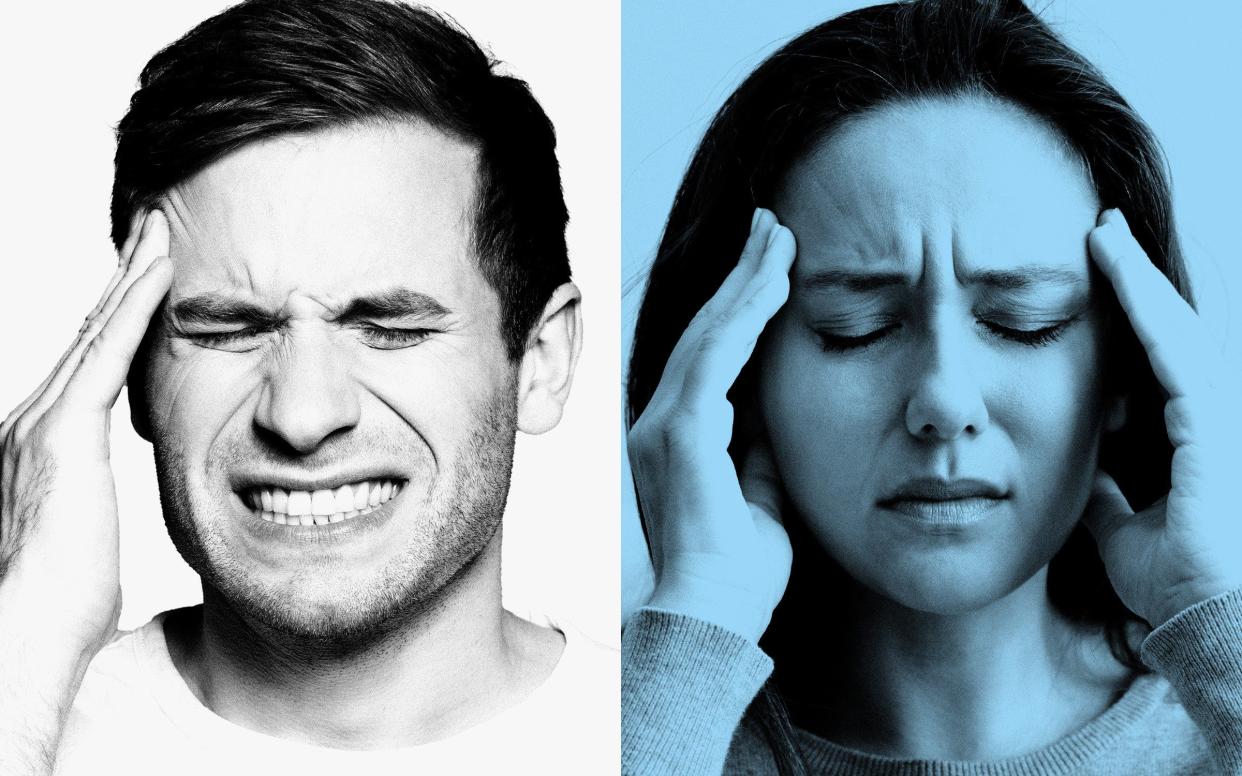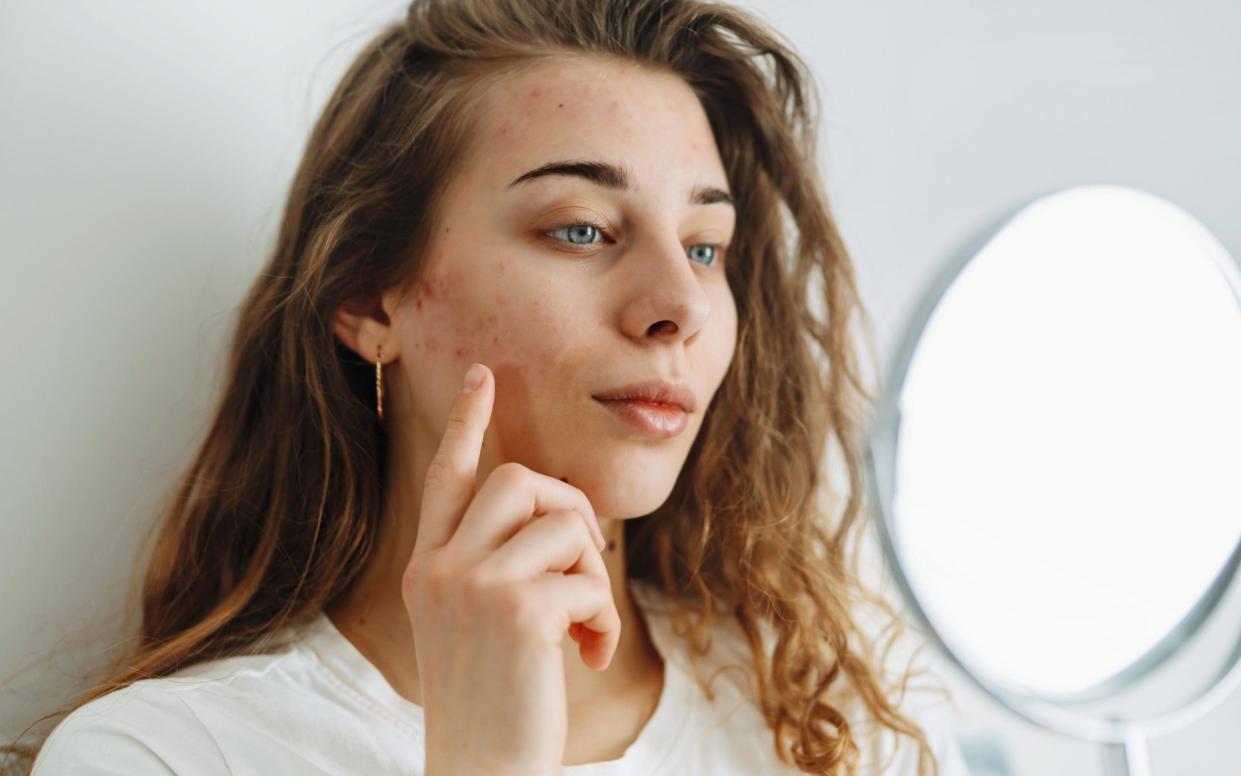How migraines, flu and heart attacks affect women and men differently

We are all created equal, of course. But one medical truth we can’t avoid is that the sex we’re born with can determine the way we experience certain illnesses. In fact, a growing body of research is exploring the varying symptoms men and women can develop to the same health problem.
Migraines and headaches
A staggering one in five British women experience regular migraines, compared with one in 15 men. And while we don’t know exactly why, we do know what triggers them is different, says Dr Jeff Foster, a London GP and men’s health specialist. “Men are more likely to experience migraines after strenuous physical labour while women are more likely to develop them in response to night shifts, lack of sleep or irregular sleep patterns,” he says. “Triggers could include dehydration and caffeine, so not drinking enough water when you’re doing physical labour and drinking too much coffee on night shift. But no one knows why for certain.”
Hormones may also play a part, says Dr Colin Michie, deputy head of medicine at the University of Central Lancashire. “A dip in oestrogen can bring on a headache or migraine which is why more women might experience them around their menstrual cycles, at the start of the menopause [perimenopause] or after a hysterectomy.”
Colds and flu
Scientists have unlocked a number of potential reasons flu in general – including Covid – affects men and women differently, though they are still being researched.
Firstly, men’s lungs have more of a specific type of receptor which affects how the infection takes hold. “Severe Covid infection occurs by binding to a protein in our bodies called the angiotensin-converting enzyme 2 (ACE2) receptor,” says Dr Michie. “Males have more of these receptors in their lungs, giving the virus more of a chance to take severe hold.”
Secondly, X chromosomes (of which women have two and men one) contain a large number of genes that are related to immune function. “Women are more likely to have more robust expression of these genes and to produce more immune factors, like what are called ‘interferons’ which are natural antiviral proteins,” says Dr Stathis Giotis, a lecturer in molecular virology at the University of Essex.
Thirdly, hormones. “Women have oestrogens which have an immunoprotective effect, while androgens probably suppress the immune system,” says Dr Giotis. “That’s why women may clear the virus more easily than men.”
In short, the dampening effect of testosterone on the immune system may make men more susceptible to viral infections like flu and more serious symptoms – which means “man flu” is likely to be a thing – while oestrogen might have a protective effect, making women’s symptoms milder.
Skin problems
“Women have got far more complex hormonal patterns because of our menstrual cycles, pregnancy, the contraceptive pill and even menopause and that’s a trigger,” says Dr Anjali Mahto, a consultant dermatologist at Self Clinic London. Stress too can also stimulate the secretion of substances that activate oil glands in the skin of people with acne to produce more sebum that leads to pimples. During the teenage years, males are afflicted but from about the age of 23 onwards, adult acne is more common in women, affecting about 40 per cent of women and only 8 per cent of men, says Dr Mahto.

While skin cancer affects the same number of men as women, it’s growing faster in the former with cases in men having tripled since the early 1990s. “Men aren’t as good with applying sunscreen,” says Dr Mahto. In men, the most common site for skin cancers to develop is the back, while in women it’s the lower legs. “Women are good at applying sunscreen to their faces, but most will forget it on their legs. Likewise, men are less likely to ask for help putting sunscreen on their backs. So they’re two areas where high-intensity sunburns can occur – especially on holidays in the stronger sun.”
Blood pressure and heart problems
Men typically have higher blood pressure than women. “One of the reasons is because oestrogen has a protective effect,” says Dr Foster. “That’s why after menopause when oestrogen levels drop, women’s levels of hypertension [high blood pressure] catch up with men’s.”
Men also have twice as many heart attacks than women. “The main lifestyle factors that put you at risk, including smoking, alcohol and central obesity, are all greater in men,” says Dr Foster. “And while their cholesterol is also higher than women’s they’re less likely to get themselves checked until after something goes wrong, which is often the case.”
Men’s and women’s hearts are different sizes too which could also play a part in how they experience heart problems, says Dr Michie. “The average weight of a male heart is 331 grams and a female’s is around 245 grams and they’re usually a different shape,” he says. In fact, a systematic review comparing male and female hearts in 2022 concluded that female hearts not only beat faster and have lower blood pressure, they’re also structured differently. Yet most medical research is done on men’s hearts, once again emphasising the need for sex-specific medical studies in order to “better understand the female heart”.
Recommended
Five foods that affect men and women differently


